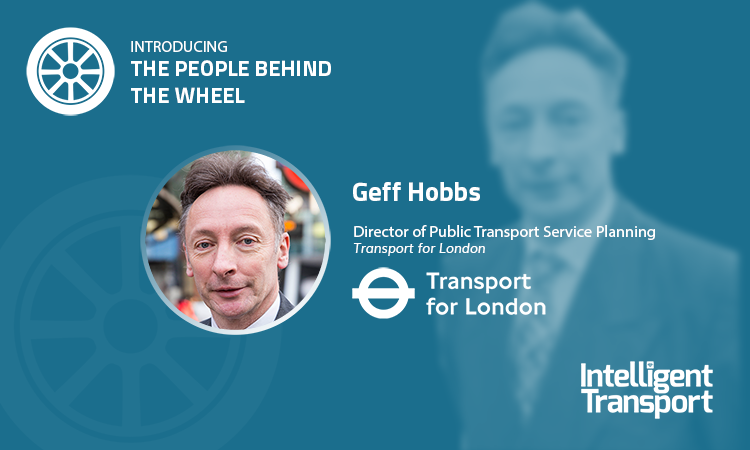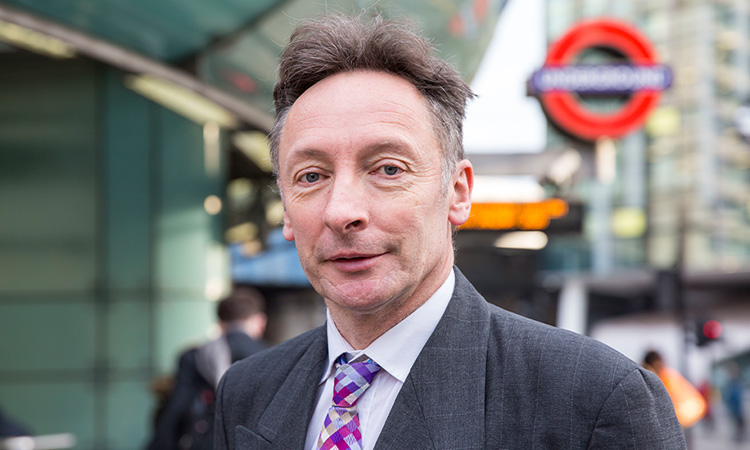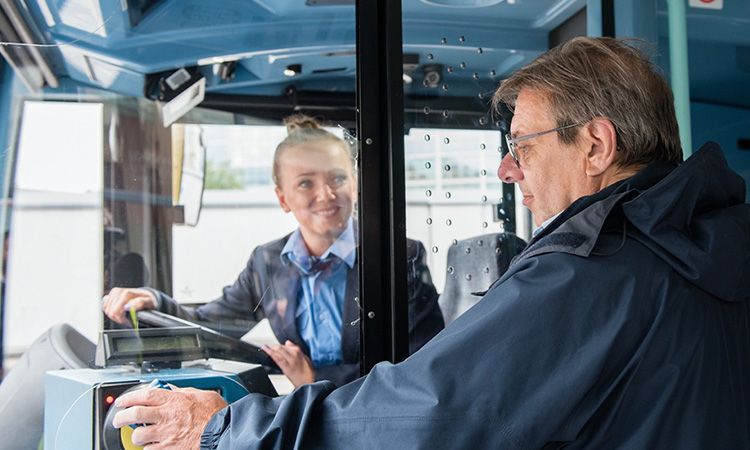The people behind the wheel: Geoff Hobbs’ story, Transport for London
- Like
- Digg
- Del
- Tumblr
- VKontakte
- Buffer
- Love This
- Odnoklassniki
- Meneame
- Blogger
- Amazon
- Yahoo Mail
- Gmail
- AOL
- Newsvine
- HackerNews
- Evernote
- MySpace
- Mail.ru
- Viadeo
- Line
- Comments
- Yummly
- SMS
- Viber
- Telegram
- Subscribe
- Skype
- Facebook Messenger
- Kakao
- LiveJournal
- Yammer
- Edgar
- Fintel
- Mix
- Instapaper
- Copy Link
Posted: 27 July 2023 | Geoff Hobbs - Transport for London | No comments yet
For the latest instalment of Intelligent Transport’s exclusive ‘The people behind the wheel’ series, Geoff Hobbs, Director of Public Transport Service Planning at Transport for London, discusses his role in shaping the future of London’s public transport system and the challenges and opportunities that lie ahead.


Can you tell us about your role at Transport for London (TfL)?
I lead the team that defines and justifies the level of public transport services that we run every hour of every day in London. This includes our timetables for the London Underground (Tube), buses, Docklands Light Railway (DLR), London Overground and trams.
What inspired you to seek a career in the transport industry?
Doing my job in London is unparalleled, given the sheer variety of public transport and their various quirks”
Economics is my trade and I wanted to use it in practical terms to support something that the general public uses all the time – transport. For me, this is one of the best applications that one can make of economics and, fortunately, there is now a load of data which enables us to do it well. Moreover, doing my job in London is unparalleled, given the sheer variety of public transport and their various quirks.
Have you experienced any challenges in your role and, if yes, how have you overcome them?
Financial challenges – they’re more or less semi-continuous. There is also our performance in operating our timetables. We’re only as good as our last peak. Increasingly, our performance on the weekend is also worthy of regular assessment in the eyes of our customers due to the change in travel patterns brought about by the pandemic. Good day-to-day performance gives us a mandate to raise our professional sightlines to wider transport issues and challenges.
Has a career in transport changed your perception of the industry as a whole?
For many people, transport has been central to unlocking a better quality of life”
Over the years, I’ve had the pleasure of seeing how transport has affected the city I love in terms of its economy. When I was growing up in the 1970s, my trip into town through the East End along the viaducts to Fenchurch Street station had a view of many empty spaces, some dereliction, and even a few late 1940s prefab houses. Now, Docklands is thriving, and the capital looks transformed. For many people, transport has been central to unlocking a better quality of life. The Jubilee line, for example, was a big part of that change.


What would be the top three highlights of your career in the industry to date?
My highlights include helping relevant teams in TfL to:
- Justify and fund investment projects such as London Underground line upgrades, the London Overground East London line and the electrification of the Gospel Oak to Barking line
- Introduce 10 new bus routes and 40 route extensions that have made a difference, notably in outer London where public transport has market share to chase
- Create London Overground after the transfer of run-down services with 30 million annual users to one with 200 million users, top-of-class reliability and customer satisfaction, and far greater connectivity and customer focus.
Where do you see yourself in five years’ time?
Toxic air, climate change and congestion are becoming clearer every day, and it’s vital that we find technical solutions that help us run clean, green services that get Londoners where they need to be”
There is still a lot to achieve. Recovery from the pandemic is our main focus. We are now looking at how our services fit the new world, retaining what we had before but looking at new travel patterns. This gives us the means to pick up the drive towards a more sustainable transport system, in which 80% of trips will be made by public transport, walking and cycling.
The threats of toxic air, climate change and congestion are becoming clearer every day, and it’s vital that we find technical solutions that help us to run clean, green services that get Londoners where they need to be. The ongoing electrification of our bus fleet and ULEZ is just some of the work by TfL that will be central to building a fairer, greener and more prosperous city for all.
I also quite fancy being a part time magistrate, if they’d have me.
What key pieces of advice would you give to someone who is interested in a career in transport?
Do what you can to create opportunities, and don’t simply wait for them to turn up”
Find something in the broad set of disciplines that a transport operator or authority requires in which you are genuinely interested. Try different things through lateral moves and secondments, for example. By trying different things and taking some well-judged risks, you can broaden your experience. On occasion, you’ll find what you don’t want to do, but equally you might find your ideal niche unexpectedly, and life is too short not to enjoy your work quite a lot.
In addition, don’t employ people just the same as you. Having differing people makes for more creativity and better, more informed decision-making.
Finally, do what you can to create opportunities, and don’t simply wait for them to turn up.


Credit: Transport for London
In the future, what do you hope to see become more commonplace in the transport industry workforce?
A change that is already afoot is to make greater use of data to evidence conclusions regarding the best possible timetable changes and their impacts on our customers. There has always been at least some use of data in the decision-making process, but data is now markedly bigger in volume and better in quality, and the skills required to make head or tail of it meaningfully are now thankfully more sophisticated.
Linked to this, is the need to continue to drive towards improving customer service. This is not a new observation, but the pandemic has re-configured to a degree what good customer service looks like and what we can afford. Meanwhile, technology can help make things more readily possible.
In an ideal world, what do you hope the future of public transport will look like?
I want public transport to be heading as fast as possible towards achieving Policy 1 of the Mayor’s Transport Strategy. The policy notes the following aim: “80% of all trips in London to be made on foot, by cycle or using public transport by 2041.”
It’s policy number one for a reason. The challenge for us is to absorb the impacts of the pandemic and still hit that target.


Geoff Hobbs is the Director of Public Transport Service Planning for Transport for London, covering London Underground, London buses, London Overground, Docklands Light Railway and trams. He is responsible for planning, development and justification of ideas to change TfL’s services. He also leads TfL’s input into the development of the National Rail network in London more widely, identifying and justifying the agency’s priorities.
Related topics
Active travel, Public Transport, Sustainable Urban Transport, The People Behind the Wheel Series, Workplace
Related modes
Bikes & Scooters, Bus & Coach, Tram
Related cities
London
Related countries
United Kingdom
Related organisations
Transport for London (TfL)
Related people
Geoff Hobbs, Sadiq Khan








